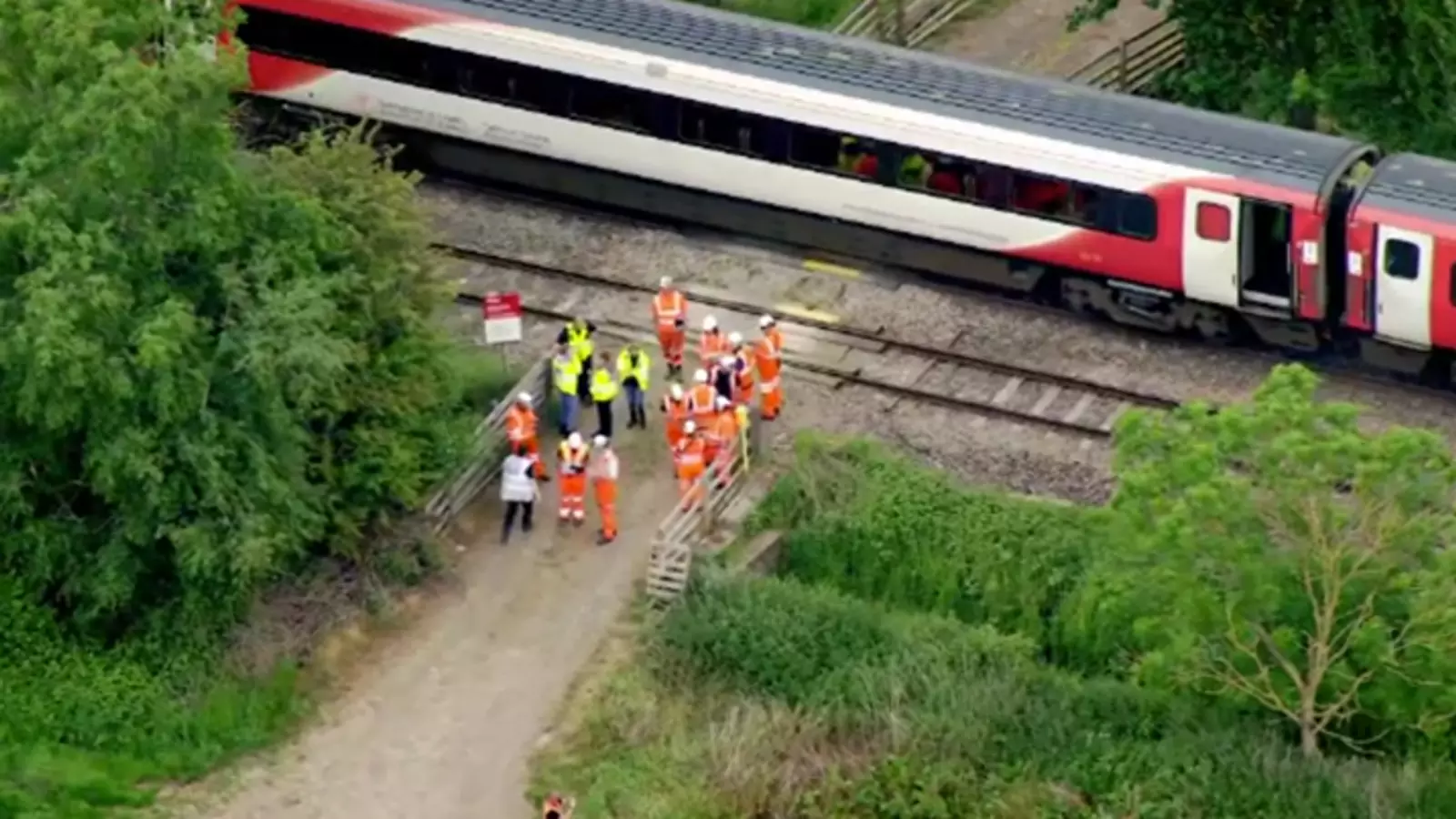In a tragic event that underscores the potential dangers present on our railways, more than a dozen individuals were injured when a train collided with an agricultural trailer at a level crossing in Herefordshire. This incident, which occurred not far from Leominster, highlights a critical issue that affects not only local communities but also raises questions about the effectiveness of existing safety protocols across the United Kingdom.
As emergency services responded with urgency, the scene revealed a man airlifted to the hospital alongside a woman requiring immediate medical attention. While the swift reaction of West Midlands Ambulance Service ensured that most passengers were treated and discharged without serious injuries, the situation laid bare the terrifying reality of railway travel in areas where safety measures may be insufficient.
The Human Cost of Neglecting Safety Measures
It is easy to disregard the alarming implications of such incidents when we are not personally involved, but the human cost can be staggering. A 32-year-old man has been arrested for allegedly endangering safety on the railway, which raises significant concerns about accountability. How is it possible that safety regulations can be so easily overlooked, leading to incidents that could have catastrophic outcomes? In an era where we prioritize technological advancement, we desperately need to direct more energy towards ensuring that our infrastructure is up to standard.
When the Rail Accident Investigation Branch sends inspectors to a scene, it serves as a reminder that these are not mere statistics; they are warnings about systemic failures in safety regulation that must be addressed. The fact that the level crossing in question was a “user worked” crossing amplifies the concern. The responsibility placed upon individuals to operate the crossing introduces an added element of risk that is entirely avoidable with better infrastructure and oversight.
Systematic Change: The Need for Robust Measures
This incident should serve as a clarion call for policymakers and railway companies alike. We must advocate for systematic reforms that prioritize safety over complacency. Transport for Wales has announced that other train operators will be accepting tickets, indicating efforts to mitigate immediate disruptions. However, this reactive approach does not solve the underlying issues; it merely allows train services to continue in the aftermath of a preventable tragedy.
As conversations surrounding transport safety unfold, we must ask ourselves—are we doing enough? The answer seems to be no. The disruption caused by this collision is not just a temporary inconvenience; it should be seen as a critical juncture for change, compelling stakeholders to confront the realities that have led us here.
Every level crossing, every agricultural vehicle, and every train must be subject to strict regulations that ensure our safety is not left to chance. While we can only hope for the quick recovery of those affected, it is imperative that we turn this tragedy into a movement for meaningful change. The time has come to prioritize our safety in transit and reevaluate our approach to train crossing management. Let this incident not be yet another footnote in a history of preventable accidents, but rather a pivotal moment in our journey toward safer railways.

Leave a Reply